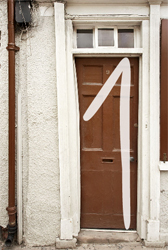
The media in Serbia: Sycophancy and low quality

The media scene in Serbia has been characterized by low quality for years. The expected change in direction after the removal of Slobodan Milosevic from power, as well as a lustration, failed to materialize, and after some time, mostly thanks to the current regime – especially the strongest among our political parties – everything became similar to everything else and nobody's professionalism or quality stood out among the rest. The long-gone truth and national-chauvinism exhibited during the breakout of the former Yugoslavia are now replaced by sensationalism, lack of culture and bad taste promulgated by low-quality "workers" (journalists) for the purpose of inciting the lowest basic instincts in viewers, listeners and readers.
It it easy to find a proof for these claims. Read a few daily newspapers (just glance at the headlines in the three papers with biggest circulation!) or listen to news programmes on two or three TV stations. Therefore I was (not) surprised by the report issued in the beginning of May by the local office of the New York-based non-governmental organization, Freedom House, which described the situation in Serbian media as "relatively satisfactory". The said "company" researches the freedom of the media in the world and their aforementioned conclusion was reached after getting acquainted with the report made by the Independent Journalists' Association of Serbia (NUNS) which says that "there are currently around 300 court proceedings related to libel or infliction of emotional pain, mostly against journalists from liberal media houses". No comment.
In an interview for a daily newspaper, the president of the Journalists' Association of Serbia and former editor-in-chief of Politika, Ljiljana Smajlovic, described the situation in our journalism as deserving of "medium grades". Interesting opinion, at the same time while managing the oldest newspaper in the Balkans, noting that the "teacher" achieved only low grades. Djordje Vlajic, BBC's correspondent from Belgrade, claims that the media "are not unfree" but that the degree of their freedom is questionable. The current editor of Politika, Dragan Bujosevic, offered the old and worn-out phrase that "journalists have as much freedom as they win and take themselves". How untrue! Bujosevic added that "everyone wants to limit the freedom of the media, and journalists' job is to grab and win that freedom". As far as I know, just before he became the editor of Politika, the president of the country intended to "liberate" it, but it was decided to forgo such move. For the uninformed among us, a short explanation: if you want to rule the country comfortably, you need two (tamed) media houses – the RTS and Politika.
There are too many media outlets in the country and they are on average on a very low level. At the same time, no one even bothers to thoroughly and comprehensively study the language. Almost every day, you can hear on the national TV expressions like "to have as a goal" or "very often", while the presenter of the quiz "Slagalica" failed to realize that the palisad is a fence made of wooden stakes, not only a famous hotel in Zlatibor...
Serbs are prone to idealizing as well as looking down on others. Talking about the latter, here is an example of the often-held belief that big and powerful global players (with money and weapons!) have placed everything where it belongs and that their media are free and fair. In the end of June (ten years of the programme "Pescanik"), an anthropologist, Svetlana Slapsak, said that it was mentioned at the Council of Europe that Greece had imported weapons worth more than the country's debt and that German media suggested that the losses should be covered by selling a few islands. The only difference between us and the world is that the sums and higher and strong players usually win.
The media in Serbia cannot be judged as satisfactory, while the often-heard claim that the media cannot be different from the people, the parliament, the government, the Church or University... only makes it more difficult to find a way out of the mud that we have been pushed into by politicians and other power brokers and in which we still wallow today.
Dragan Banjac
MC Newsletter, July 16, 2010
View all comments (0) Leave a comment
Published comments contain opinions that are not the opinions of Media Center. Responsibility for the content of messages and their accuracy lies on the website users who posted them.
 |
| The content of this article does not necessarily reflect the view of the Media Center. The author bear full responsibility for the content of the text. |




